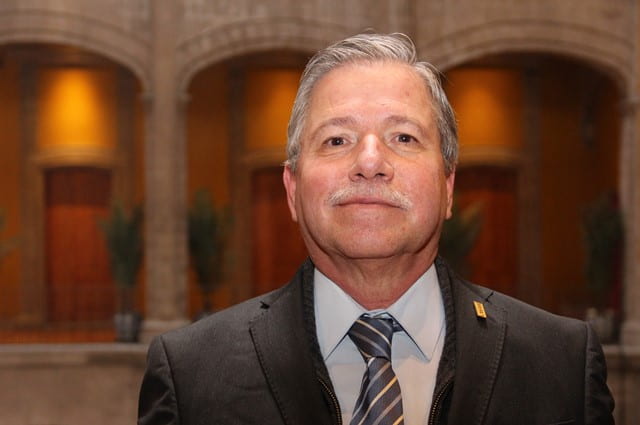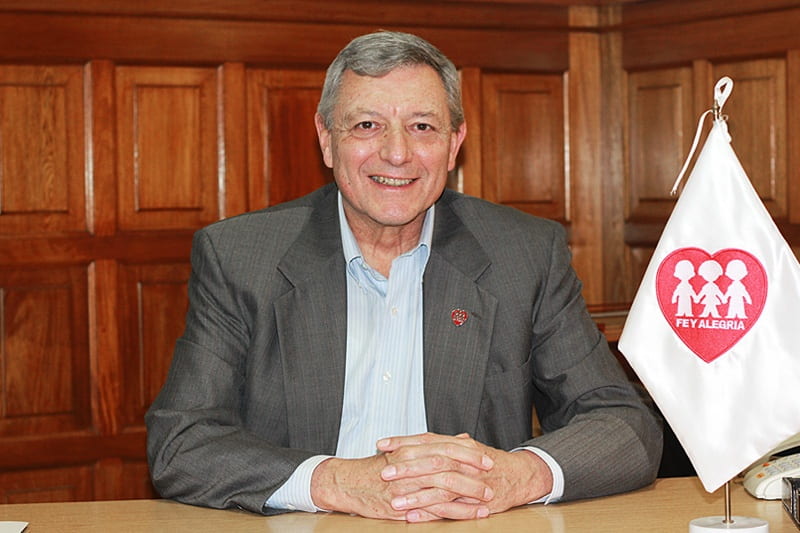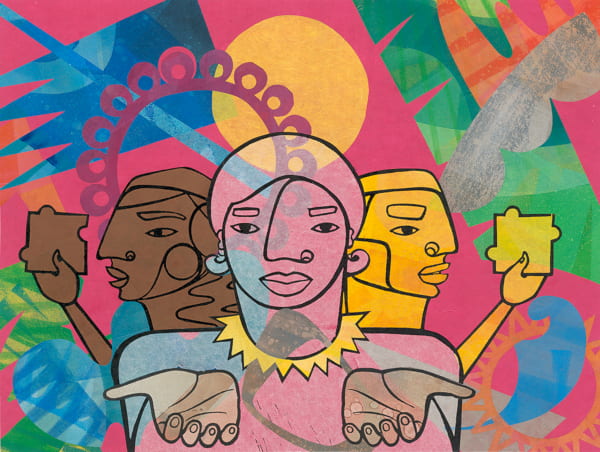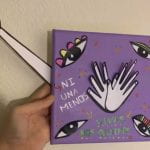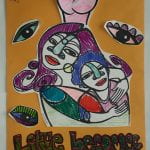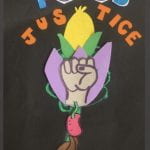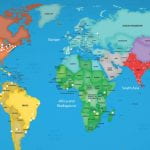Author: Ernesto Cavassa, S.J., Head of Fe y Alegría in Perú
The 2021 context is much more complicated than the way we started 2020. Undoubtedly, the aftermath of COVID 19 marks the scenario in which we will have to work, with issues that present challenges that demand us to find answers and paths of hope. Let us look at some of them.
2021: ELECTION YEAR, BICENTENNIAL OF THE REPUBLIC AND 55 YEARS OF FE Y ALEGRÍA
Politically, 2021 brings us significant events in the calendar: the Bicentennial of the Proclamation of the Independence of Peru and the beginning of a republic, with national identity and common objectives; and the 55th anniversary of the presence of Fe y Alegría in Peru. These dates are a good opportunity to review how far we are from republican and institutional values after 200 years and 55 years, respectively.
To these anniversaries must be added the elections of a new government, on April 11, which should take office on July 28. The electoral process is taking place amid the “second wave” of the pandemic that is leaving an estimated 200 deaths per day. Besides, it comes after a complicated political year: President Vizcarra’s vacancy, the parliamentary coup d’état led by Congressman Merino, the massive popular demonstrations against him, his resignation a few days after taking office, and the appointment of a precarious transitional government.
In this scenario, issues such as full citizenship within the National Education Project framework to 2036, development with a territorial and intercultural approach, reinforcement of the democratic system, battle against corruption, and permanent defense of the rule of law.
HEALTH AND ENVIRONMENT
Peru is one of the countries most affected by the pandemic. The health system was not prepared for this eventuality. Since the beginning of the pandemic outbreak, there have been 1,320,000 cases, and the official number of deaths is 46,299. However, the number of deaths compared to a typical year shows a higher number. It is estimated at more than 100,000 deaths, particularly among the elderly and vulnerable. The number of the one million Venezuelan migrants is not known, but due to the precariousness of their situation, it is very likely to be high.
The vaccination process has already started with the so-called “front line,” basically health professionals. This will be followed by the police, the elderly, and members of polling stations. Teachers are entering the second phase. Never before have we been more aware of the value of life and the importance of staying healthy, of taking care of ourselves, of caring for others, of our relationship with nature. Humanity has had to assume its vulnerability, leaving aside the feeling of omnipotence in front of the world; but, it has been evident the greater exposure of those who already add other conditions of fragility, built by unjust and unequal power relations.
The preferential option for the most vulnerable, care for the common home, care for personal and community health, with emphasis on healing and strengthening of self-esteem and emotional health, are presented as cross-cutting themes.
ECONOMIC RECOVERY, UNEMPLOYMENT, AND INFORMALITY
Economically, it is estimated that it will take about ten years to recover the situation we had before the pandemic. Peru is one of the most affected countries in its economy since 70% of the EAP is informal (precarious work, daily, without social benefits). Families are busy rebalancing the household economy, and the school will have to strengthen its role in accompanying students and their parents. Educational institutions will be tested in their ability to respond with relevance to the moment, with the objective that “no one is left behind.”
It is a challenge and an opportunity to put school flexibility to the test and propose ways to accommodate students who must help with the family economy, test mechanisms that allow them to resume their studies, or alternate work for periods. It is a good time to continue reflecting on the link between education and the world of work and our education models for work.
SOCIAL SOLIDARITY
Faced with the increase in poverty, we are witnessing a double movement: on the one hand, the rise in delinquency; on the other, the reappearance of solidarity programs typical of the time of crisis (soup kitchens, soup kitchens, etc.), especially in urban-peripheral neighborhoods. To prevent violence and delinquency from gaining ground as escape valves, we need not only immediate responses to alleviate the moment but also to open more solid paths of hope. These include civil society proposals, the business world, and faith communities supporting the State in such essential matters as supplying oxygen to the sick population and continuing to open intensive care units in hospitals. The Catholic Church’s work should be recognized in this process with proposals such as “Resucita Perú” and “Respira Perú.”
The need for formative and sustained work with families and surrounding communities to implement experiences of solidarity to rediscover the strength of the collective and teamwork is positioned. The educational institution will be able to fulfill its task of social promotion with projects for the recovery of the person, the common good, and the community.
It is time to join others in the effort. The time is propitious to establish and strengthen alliances with the State, organizations, companies, and people who want to join our efforts.
EDUCATIONAL CONTINUITY AND RECOVERY
In terms of education, 2021 presents a scenario with many pending issues: differences and large gaps in educational continuity and learning outcomes in 2020. Peru was one of the countries that had made the most progress in the last decade (2009-2019) in school coverage and attendance in the city and the countryside (almost total in boys and girls in the primary school years), increased learning in reading comprehension, mathematical and scientific reasoning, placing it in the Latin American average range. Also, it had covered school feeding programs for early childhood and had leaped the supervision of university quality, confronting the “garage” universities. The university quality licensing process concluded last year had left one-third of the low or no quality universities out of the system. Only those that have demonstrated basic levels of quality will continue to operate.
The pandemic has brought us a new drop-in basic learning achievement, widening students’ gaps by geographic areas (urban, rural, Amazonian) and socio-economic levels, school, and higher education dropouts. The alternative of distance education through various media has revealed significant challenges: new learning, the need for pertinent pedagogical proposals, new teaching skills, and an equipment and connectivity debt that also reveals a new right to access equitable conditions of development. Necessary and urgent tasks are emerging at the political, social, and educational levels. Although the State reacted quickly with the “I learn at home” program, the results have not been as expected, and inequality has deepened. The return to face-to-face education is an urgent demand for pedagogical and social justice reasons.
From Fe y Alegría, we have proposed a medium-term strategic recovery plan (2 years of maximum student retention and three years of full recovery) until we reach at least the levels we had in 2019. At the same time, we took the opportunity to validate the “proposal to guarantee to learn in times of emergency,” recently published on the web (www.feyalegria.org.pe) to better prepare for scenarios like the current one in the future.
We need to be creative to propose re-engagement processes for students who left or appeared very intermittently in the educational system in 2020, alternative, complementary programs (face-to-face/distance), efficient pedagogical resources: remedial modules, pedagogical alternatives, relevant materials, efficient administrative processes, renewed repositories, technical assistance to managers and teachers.

